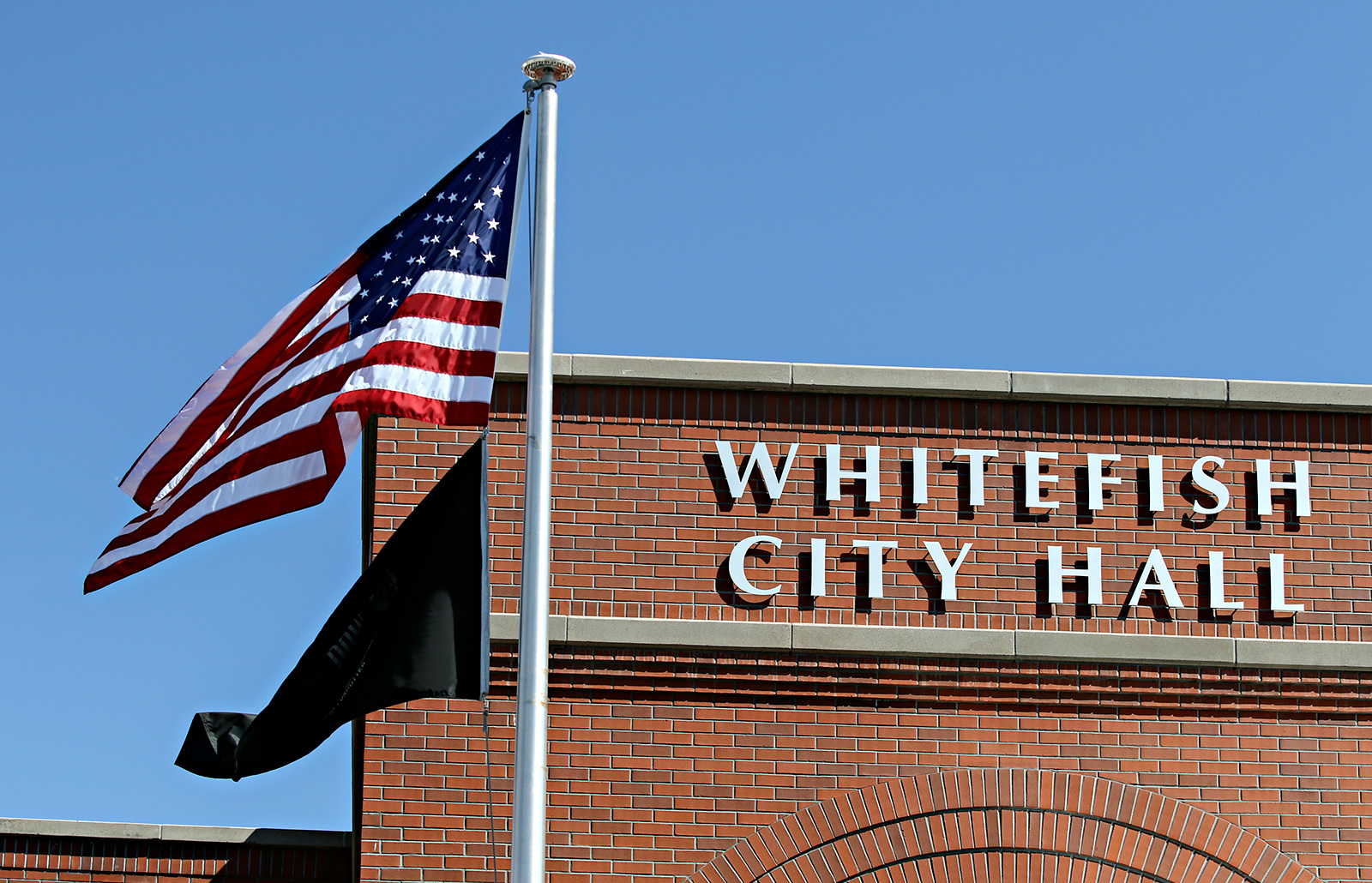By a little less than a 300-vote margin, preliminary results show Whitefish voters appear to have approved a ballot question in favor of amending the city charter to allow city councilors to receive compensation through the city for their work in government.
Early last spring the Whitefish City Council opted to put the question before voters on their fall ballots. Results viewable on the Montana Secretary of State’s website Wednesday showed with six of six precincts partially counted, 53% of voters, or 2,330 people voted for the charter amendment, and 2,042, or 47% voted against.
With the ballot question’s passage, City Manager Dana Smith said that at the council’s Nov. 18 meeting city staff may receive further direction about next steps, including the possibility of scheduling a work session for additional discussion.
Assuming the council shows an interest in taking up the issue, the specifics of potential compensation will be the subject of a public hearing. Some combination of a salary, stipend, health insurance with the city paying the premium, per diem and mileage allowance are all possible.
Whitefish is one of a limited number of local governments in Montana that does not currently offer compensation to its city council. During a work session in February, the council was presented with a 2022 wages survey from the Montana League of Cities and Towns (MLCT), which laid out salaries for more than 60 local governments in the state, and showed Troy as the only other all-volunteer council.
At the time of the early 2024 work session, some councilors showed support for the idea of being eligible for health insurance through the city, with the city paying the premium. At the time, Smith estimated that a family plan could range in cost from $24,000 to $26,000 per councilor that opted for city health insurance.
Councilors at a May meeting voted unanimously to let voters decide after the idea began to gain traction, with some councilors suggesting that it could help ease some of the financial barriers preventing younger or working-class community members from seeking election.
One councilor, Giuseppe Caltabiano, said at the time that he thought it was a conflict of interest for the council to award themselves any sort of financial advantage through their office, and that if the ballot question was approved he would advocate that current members of the council not be eligible for compensation.
Councilor Rebecca Norton, a longtime proponent of the idea of council compensation, disagreed.
“This is for the future, it’s not for us. I know you guys are sensitive for that. I recommended this 11 years ago. Now, we have a lot of need in our community to encourage participation in the public process. And this is one way we can do it,” Norton said in May. “People might not want to take a stipend if they’re elected, they might not need health insurance. But for people that might benefit from that, if they have leadership skills, it could make a difference in them running, or serving. I know you guys are sensitive to taking anything when we’re all volunteers but this really is about the future.”
Right now, members of the Whitefish City Council receive some perks and the city covers the cost of some work-related purchases including up to $500 to offset the purchase of an electronic device, $150 per quarter for use of a personal cell phone or access to a paid city cell phone, a WAVE membership, and the opportunity to opt into the city’s health insurance program by paying the full premium for whichever plan they select. Per the city charter, council members are also eligible to receive a per diem and mileage allowances for expenses incurred while performing their official duties.
In other Whitefish election news, voters also selected Saundra D. Alessi, Nathan Dugan, Kevin McDowell, Dakota Whitman and Scott Wurster as their five representatives to sit on the local government study commission. Six candidates ran, with the top five winning a seat on the commission. Dugan received the most votes, with 2,016, followed by McDowell (1,823), Whitman (1,681), Wurster (1,604) and Alessi (1,576). The six-place vote getter, Michael Hein, received 1,354 votes.
Voters in June supported the 10-year local government review commission, triggering this fall’s election to sit on the commission. Montana’s Constitution gives voters the chance to approve such a review once every 10 years. The commission is tasked with studying Whitefish’s local government, soliciting feedback, and then potentially crafting changes to propose to voters by November 2026.
At its Nov. 18 meeting, the council will appoint a nonvoting member to the study commission, and then the commissioners will have 10 days after the election is certified to hold their first meeting, according to Whitefish City Clerk Michelle Howke. At the first meeting, a presiding officer will be appointed by the commissioners, and meeting dates will be determined. Those meetings will be open to the public.
